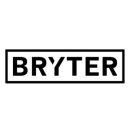Plenty of companies will tell you that their people are their greatest asset, but six Boston tech leaders are putting their money where their mouth is.
Around 4 million Americans have voluntarily left their jobs every month since April 2021, according to the US Bureau of Labor Statistics. However, the people embracing the Great Resignation aren’t giving up on employment altogether — they’re simply getting better jobs and finding better company cultures. In fact, a 2020 study by the Hinge Research Institute found that over 57 percent of job seekers across all career levels rated company culture and values to be a top criteria they looked for in a new workplace.
“Employee engagement and inspiration play vital roles in attracting and retaining great talent,” said Kristin Koehler, the head of HR at cloud-based restaurant operations platform Crunchtime! “We know that people do their best when they feel appreciated and we strive to create an environment that celebrates authenticity.”
With cost of replacing and training each new employee ranging from one-half to two times the employee’s annual salary, ensuring that a workforce feels appreciated is in each company’s best interest. But how does a business actually show that appreciation in a way that counts?
Mike Gutner, VP of people and organizational success at point-of-sale platform Toast, has an idea. “A people-first culture starts with authentic transparency — communicating what we’re doing and why we’re doing it in a genuine and empathetic way,” he said.
Building a strong and positive culture that prioritizes people is undeniably important if companies want to see the best performance and longevity from their employees. Built In Boston caught up further with Koehler, Gutner and four other industry leaders about their commitment to a people-first culture and the programs and benefits they offer to support that mission.

What steps has your company taken to foster a people-first culture?
Being a people-first organization is in Toast’s DNA. It’s who we are and a key ingredient to everything we do. I have the benefit of being in a job where I see all of the behind-the-scenes work that goes into fulfilling this commitment. A people-first culture starts with authentic transparency — communicating what we’re doing and why we’re doing it in a genuine and empathetic way.
Throughout the Covid-19 era, we’ve been honest about what we know and what we don’t. Early on, we heard from employees that they wanted a level of flexibility that allowed them to still do the work they love, but in ways that best fit their lives. Based on that, we ensured that our team had a level of flexibility from the get-go that fit their lifestyle and how they prefer to work. Our Future of Work program is fully designed around that structured flexibility, from their at-home setups and usage of stipends, to shifting a significant percentage of roles to anywhere in the U.S. We’ll continue to seek more opportunities to keep injecting this flexibility wherever and however we can.
A people-first culture starts with authentic transparency — communicating what we’re doing and why we’re doing it in a genuine and empathetic way.”
What perks, benefits or other offerings help support a people-first company culture?
Many of us have seen an emotional and mental health reckoning over the past two years brought on by the pandemic. At Toast, we think the solutions come in many forms, but it starts with space and support. We have a mental health employee resource group that’s open to all employees and builds community around resource sharing and conversation. We provide a sabbatical at the five year anniversary mark to give employees flexibility and freedom to do the things they love. We provide generous family and medical leave programs, including parental leave, to give our team time for their own health and wellness, as well as time to care for and bond with family members. We embrace remote and hybrid work options for most roles, giving employees the flexibility they need to ensure they thrive in both their personal and professional lives. We’ve brought in experts to help employees navigate the challenges of traumatic events and all employees have access to a therapy and emotional support platform that connects them with a counselor for up to twelve sessions per year at no cost. We’ve only scratched the surface and we have plans for much more.
How do you gauge the effectiveness of these efforts and ensure employees feel valued and supported? How have you adapted your strategy in response?
We listen to our team and put a lot of work into creating listening opportunities of all kinds. Some are qualitative, like leadership coffee chats, anonymous Q&A sessions at meetings, our speak-up hotline and more. Others are quantitative, like our first 30-day surveys that seek to understand how effective our onboarding programs are at driving job effectiveness and belonging. We listen through these sources and our day-to-day conversations to know what employees value the most and where we should direct our focus. Our approach to the Future of Work program was born from this listening, where we learned that most employees wanted a hybrid work life and many just wanted to pop in the office for a big event or to collaborate on a whim. We built benefits programs, new remote work options and began retooling our office space to bring collaboration to the forefront of the in-office experience.

What steps has your company taken to foster a people-first culture?
Flywire takes pride in putting our employees, or “FlyMates,” first. This starts with simply listening to our FlyMates, asking for feedback and acting on that feedback, but this can’t be done without creating a culture of open and honest communication. We strive to be a very transparent organization across all levels and continue to work hard, especially in this virtual world, to ensure we’re keeping our FlyMates informed about the strategic direction of the organization.
Executives make themselves available to FlyMates and we survey our employees regularly to make sure we constantly keep a pulse on how they’re feeling. One statistic we’re particularly proud of is that 95 percent of FlyMates say management is approachable and easy to talk to. There’s always room for improvement, but we work hard to set an example that the doors of communication are always open. Lastly, we’re a values-driven organization and are consistently referencing our values to shape how we act both in and out of work. My favorite value is authenticity, which speaks to how we encourage our FlyMates to bring their whole selves to work and to seek fulfillment both in and out of the workplace.
We work hard to set an example that the doors of communication are always open.”
What perks, benefits or other offerings help support a people-first company culture?
We’ve always taken a proactive approach to enable our FlyMates to thrive. We’re a global business with many employees traveling to see each other and our clients, so we’ve always embraced virtual work and a hybrid setting. When the return to work trend came to light around the pandemic — with many companies forcing employees to return to a physical office — we pushed back on the idea because we’ve always been about letting our FlyMates choose what’s best for them and their families, including where they want to work around the globe.
Throughout the pandemic, we’ve also doubled-down our investments in our employees’ mental health and wellbeing. FlyMates have access to mental health support including wellness coaching, guided self-care, therapy, medication management and many other services critical to the overall well-being of the individual. We continue to grow our investment in FlyMates’ overall well-being including their physical and financial health. While we’ve always been accustomed to virtual and hybrid work styles, we know many of our FlyMates crave in-person gatherings to truly connect, so we regularly invest in in-person retreats.
How do you gauge the effectiveness of these efforts and ensure employees feel valued and supported? How have you adapted your strategy in response?
We have multiple continuous feedback loops with our FlyMates to make sure that the programs we invest in are worthwhile. This is both formal and informal, grounded in our belief that windows of communication should be open and every FlyMate should feel empowered to ask questions and be provided a clear answer. One way we do this is by holding regular company-wide meetings and dedicating time at the end to an open forum Q&A. Additionally, we keep the pulse on our FlyMates through annual employee engagement surveys that ask them about their overall work environment and wellbeing. From there, we take steps to make real change when needed.
What steps has your company taken to foster a people-first culture?
Our goal is to ensure that our employees feel cared for, supported and freed to bring their true selves to work every day. We believe in providing them with growth opportunities within their current path and the chance to expand their horizons across the different areas of the organization. We promote a healthy work-life balance here at CrunchTime, allowing flexible schedules to help employees deal with child care and other personal responsibilities. Happy employees mean happy customers! Employee engagement and inspiration play vital roles in attracting and retaining great talent.
Employee engagement and inspiration play vital roles in attracting and retaining great talent.”
What perks, benefits or other offerings help support a people-first company culture?
We know that people do their best when they feel appreciated and we strive to create an environment that celebrates authenticity. Some of the things we offer our employees to show our employees that we prioritize them include robust health, dental and vision plans, fitness and wellness reimbursements, generous PTO policies, annual bonus eligibility and a 401(k) plan with a company match. We also organize virtual and in-person events, offer generous parental leave for both primary and secondary caregivers, and learning and development stipends to expand professional skills. All employees also have the flexibility to work remotely.
How do you gauge the effectiveness of these efforts and ensure employees feel valued and supported? How have you adapted your strategy in response?
Like most companies, we immediately had to shift from being in the office together to being fully distributed when Covid-19 hit. It was important that we build a strong remote culture where employees feel empowered and trusted to complete their work. One of the biggest obstacles was communication, so we established communication norms early on to ensure clarity by using Microsoft Teams mandatory video meetings, email, our company-wide newsletter and simply just picking up the phone!
Weekly 1:1s are required — we find that designated time for managers to meet individually with employees establishes trust, improves performance, builds connections and celebrates individual accomplishments. For those local to the Boston office HQ who want to come in, we offer bagels every Tuesday, lunch every Wednesday and a weekly happy hour at a local bar or restaurant every Thursday. From a wellness perspective, we encourage our team to prioritize their mental health by offering a company paid membership to the HeadSpace app, as well as monthly fitness reimbursements.

What steps has your company taken to foster a people-first culture?
Here at BRYTER, we believe that our culture is fostered through every single interaction and Slack message we write. It’s very telling that one of our most frequently used Slack channels is called #appreciations and showcases a vital part of our culture — celebrating team wins, sharing small acts of kindness and simply saying thank you. We cultivate a lot of positive practices in our day-to-day business, such as taking time to properly check-in at the beginning of a meeting, listening to each other’s life updates and openly sharing what’s on our minds. We also encourage circle work to ensure that everyone is being heard and weekly all-hands meetings where the team comes together.
We put a lot of emphasis on making sure our new hires are not only enabled to learn their jobs but to understand that they are trusted to contribute and shape our culture from day one. Our founders are heavily involved in welcoming new joiners, telling the BRYTER story, how the product evolves, what behaviors are valued and how we work together. Before they know it, new team members may find themselves building a spaghetti tower with the CEO!
We believe that our culture is fostered through every single interaction and Slack message we write.”
What perks, benefits or other offerings help support a people-first company culture?
At BRYTER, we aim to build a workplace that enables human connection and togetherness while giving each team member the autonomy and flexibility to structure their day in a way that works best for them, their role, family and personal goals. There are many examples of human connection that happen on a day-to-day basis, such as our commitment to inclusive language and the support of caring circles and multiple communities.
There are also a few defining moments that reflect our culture of togetherness, such as our company gatherings. These events are not designed around getting work done, but around building trustful relationships and our overall company culture. The last gathering took place in Ericeira, Portugal, where we spent five days really getting to know one another at one of Europe’s finest surf spots.
We also care very deeply about enabling ownership and autonomy. BRYTER is a remote-first company and employees receive a generous stipend to work from home, as well as the option to visit one of our office hubs if they wish. Working hours are flexible and we trust everyone on the team to shape their day in the way that works best for them.
How do you gauge the effectiveness of these efforts and ensure employees feel valued and supported? How have you adapted your strategy in response?
One way we do this is by asking for feedback all the time and at all levels. We encourage everyone to give feedback from day one, ask for feedback, contribute proposals that are good enough and then iterate based on feedback. Feedback, feedback, feedback! We have different formats and channels — a lot of these conversations happen in 1:1s, in 360 degree feedback sessions, in retrospectives or via our organizational feedback survey. Our founders have also implemented sounding boards for topics such as diversity, equity and inclusion that help advise us and ensure different perspectives are being considered.
What steps has your company taken to foster a people-first culture?
3Play Media was founded on a mission of inclusion and has deep roots in accessibility. What we do is just as important to us as how we do it. We live by our core values — elevate our community, delight our customers, take ownership, seek improvement, teach and learn, and celebrate diversity, equity, inclusion, belonging and accessibility (DEIBA). We have monthly all-company town halls where our co-founders encourage team members to ask questions or submit anonymously. With a focus on transparency, our leaders consistently seek feedback from all employees, listen, involve the greater team in decision making and always explain the why behind every decision.
Employee safety and well being is our top priority. Back in March 2020 — two days after we opened our new office — we quickly pivoted to a 100 percent remote environment and continue to keep employee safety top of mind. We continue to offer opportunities to expand our DEIBA knowledge and ensure an inclusive workplace where all employees feel valued and have a sense of belonging. In 2021, we focused on unconscious bias training and hosting DEIBA events.
What we do is just as important to us as how we do it.”
What perks, benefits or other offerings help support a people-first company culture?
Recognizing that every 3Player is unique, we encourage our team members to bring their authentic selves to work. We support our team members by offering flexible schedules, paid parental leave and benefit options for their beloved pets. We hold frequent social events, both in person and virtual, so our team members get to socialize and meet friends and family members. Most recently, we had virtual wine, beer and chocolate tasting events. 3Play Media’s internal affinity groups — DEIBA committee, accessibility and book club — offer something for everyone.
Our generous health and wellness benefits offer robust coverage that includes gender-affirming services, mental health services, financial counseling, infertility services and general employee assistance services. We take pride in our welcoming office environment that includes free healthy snacks, open collaboration areas and gender-inclusive, private bathrooms. We encourage our team to give back to their communities by offering paid time off to volunteer and a charitable donation match of up to $500 per year. We are committed to offering our team the best and are always open to adding new benefits, events and affinity groups.
How do you gauge the effectiveness of these efforts and ensure employees feel valued and supported? How have you adapted your strategy in response?
Simply put, we ask and listen. Members of our leadership team are always available to chat or answer questions. Whether through weekly one-on-one meetings with managers, periodic HR check ins, skip level meetings, town hall meetings or anonymous company-wide engagement surveys, there are multiple ways to stay informed, hear from and solicit feedback from all team members. If something’s not working, we live by our core values by taking ownership and seeking improvement.

What steps has your company taken to foster a people-first culture?
At Akili, we are pioneering a new era of cognitive medicine and reinventing the way treatments are designed, delivered and experienced. We believe that medicine can be effective as well as engaging, so our treatments are delivered through high-quality video game experiences. Our hope is that in the moment, patients forget they’re even taking our medicine. We believe that in order to create amazing experiences for our patients, we must have an amazing employee experience. We need to take care of our employees and enable them to do their best work.
In 2021, we were going through our benefit strategy and the renewal rates returned with a double digit increase, so we worked with our dedicated partners to find an option. We introduced a high deductible health plan with an HSA that allows our employees to set aside pre tax dollars with a generous employer contribution to help pay for eligible health expenses for our team and their families. This is a testament to our leadership that we hold ourselves accountable in offering the best and different options, modeling our commitments to be creative and well.
What perks, benefits or other offerings help support a people-first company culture?
We have five Akili commitments— be accountable, be bold, be creative, be inclusive and be well. We’re always making sure our benefits and programs align with our commitments and the needs of our employees. As a small and scaling organization, we are so fortunate to be able to provide a variety of benefits and perks including equitable paid family medical leave, unlimited PTO, premium health benefits and a 24/7 employee assistance program. We also offer a work-from-home reimbursement, recognition program, bi-annual bonuses to engage in an activity that promotes health and wellness, and a charitable donation match. Aliki offers a generous holiday schedule including an annual health care day — a paid day off intended to allow us all to take a day off together, unplug and focus on personal health and wellness.
We’re always making sure our benefits and programs align with our commitments and the needs of our employees.”
How do you gauge the effectiveness of these efforts and ensure employees feel valued and supported? How have you adapted your strategy in response?
We empower our employees to continue sharing their feedback and as the people team, we’re constantly asking for opportunities to improve or try something new. With that, we’re able to adapt and update our offerings to benefit our employees as the organization continues to evolve. Our EAP utilization is five times the average booking rate against benchmark. This reflects that our employees and their families find value in this offering.
As we approach two years working remotely in a global pandemic, we continue to frequently assess our programs including total rewards, learning and development, talent acquisition and our workforce dynamic to ensure we’re staying competitive to attract, enable, develop and retain our employees while pioneering a new digital therapeutics industry.















